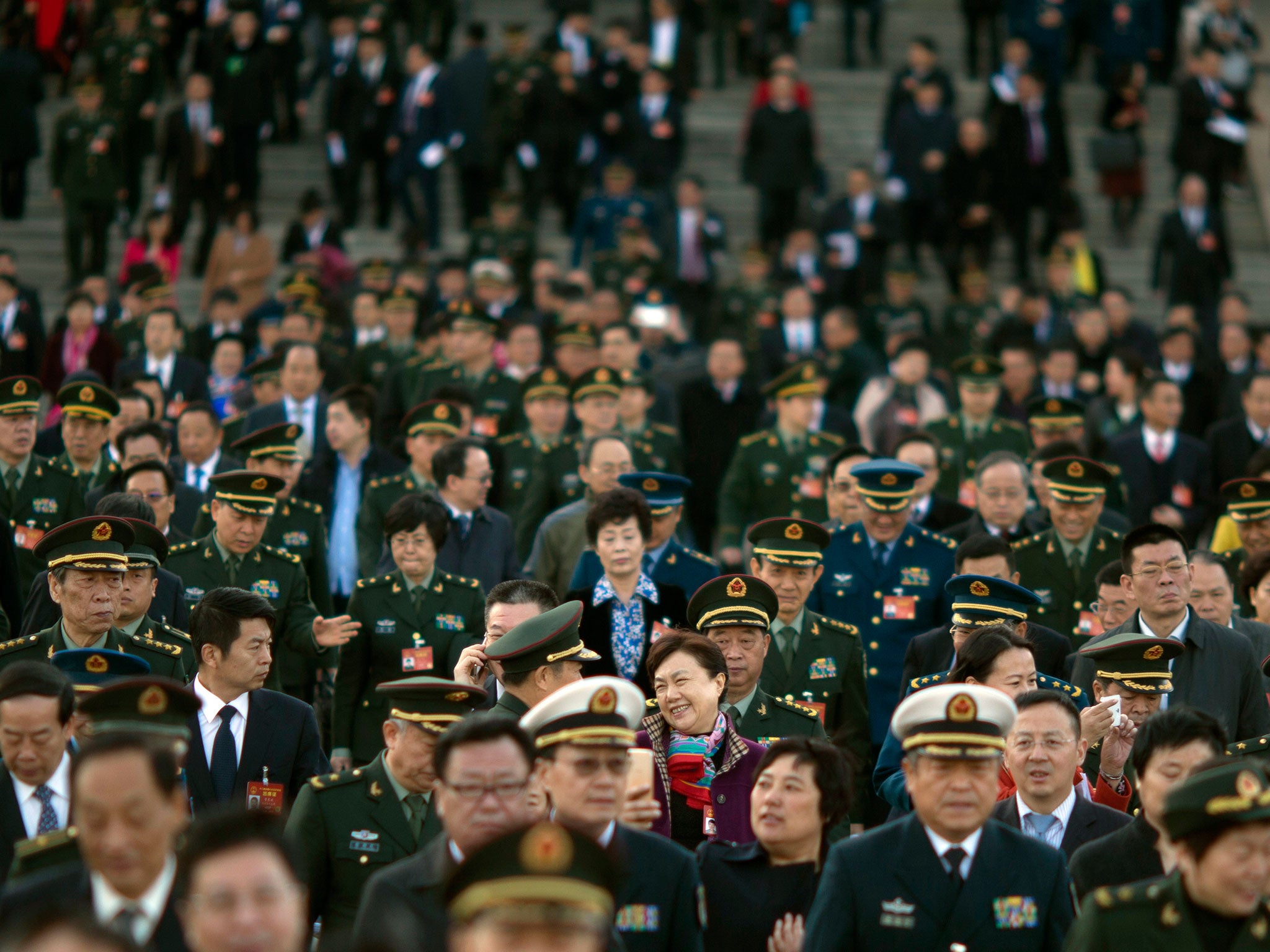China’s legislators push patriotic proposals by the hundred during National People’s Congress
Presenting ideas at the high-profile event gives delegates a rare chance to raise the profile of their pet issue

Your support helps us to tell the story
From reproductive rights to climate change to Big Tech, The Independent is on the ground when the story is developing. Whether it's investigating the financials of Elon Musk's pro-Trump PAC or producing our latest documentary, 'The A Word', which shines a light on the American women fighting for reproductive rights, we know how important it is to parse out the facts from the messaging.
At such a critical moment in US history, we need reporters on the ground. Your donation allows us to keep sending journalists to speak to both sides of the story.
The Independent is trusted by Americans across the entire political spectrum. And unlike many other quality news outlets, we choose not to lock Americans out of our reporting and analysis with paywalls. We believe quality journalism should be available to everyone, paid for by those who can afford it.
Your support makes all the difference.Doubling China’s Lunar New Year break, labelling Chinese cuisine “intangible cultural heritage” and restricting foreign influence in schools are among the patriotic recommendations made by delegates at this year’s meeting of Chinese parliament.
Many of the 3,000 delegates from across China, currently in Beijing for the 10-day meeting of the National People’s Congress, closing on Wednesday, came armed with proposals for the top leadership.
The hundreds of recommendations have only a tiny chance of being adopted, as most of the real decision-making takes place throughout the year during regular meetings of the Standing Committee, the apex of power in China. The NPC acts largely as a rubber stamp.
But presenting ideas at the high-profile event gives delegates a rare chance to bend the ear of the top brass or simply raise the profile of their pet issue.
Many of the proposals are imbued with patriotism, make recommendations for how to raise China’s international standing or focus on resolving the nation’s social issues.
Sixteen delegates from central Hunan province called for the government to push for Chinese food’s international recognition as “intangible cultural heritage” so as to bolster the country’s soft power.
Lai Xiaoming, chairman of China Huarong Asset Management, has suggested the Lunar New Year break be extended to 15 days from seven to allow the millions of migrant workers who travel home over the holiday more time to see their families.
“(Migrant workers) each year only have Spring Festival to see their older relatives and children... Often it is two or three days on the train, two or three days at home – you don't have time to warm your bum before you need to leave,” Mr Lai said.
Liu Yonghao, president of agribusiness group New Hope, is pushing for more industrial kitchens to be used to consolidate production and combat food safety problems in China’s rapidly growing home-delivery industry.
“There are now tens of thousands – hundreds of thousands – of catering companies. Some online (platforms) do not know what remote place their dishes come from. No one supervises the food’s quality,” Liu told Reuters.
Some of the proposals, however, seek to limit foreign influence when it is perceived to undermine Chinese interests.
Shanghai delegate Yan Chengzhong is proposing that more be done to guard against western ideas being taught in public schools during the compulsory nine years of education.
“If schools are managed by foreigners with different culture, different world views, different values, different views of development, we can inevitably expect them to be ‘de-sinified’,” Yan said in the proposal.
“We absolutely must not let the results that came from the ‘de-sinified’ education of young people in Taiwan be repeated on the mainland,” he said.
Reuters
Join our commenting forum
Join thought-provoking conversations, follow other Independent readers and see their replies
Comments